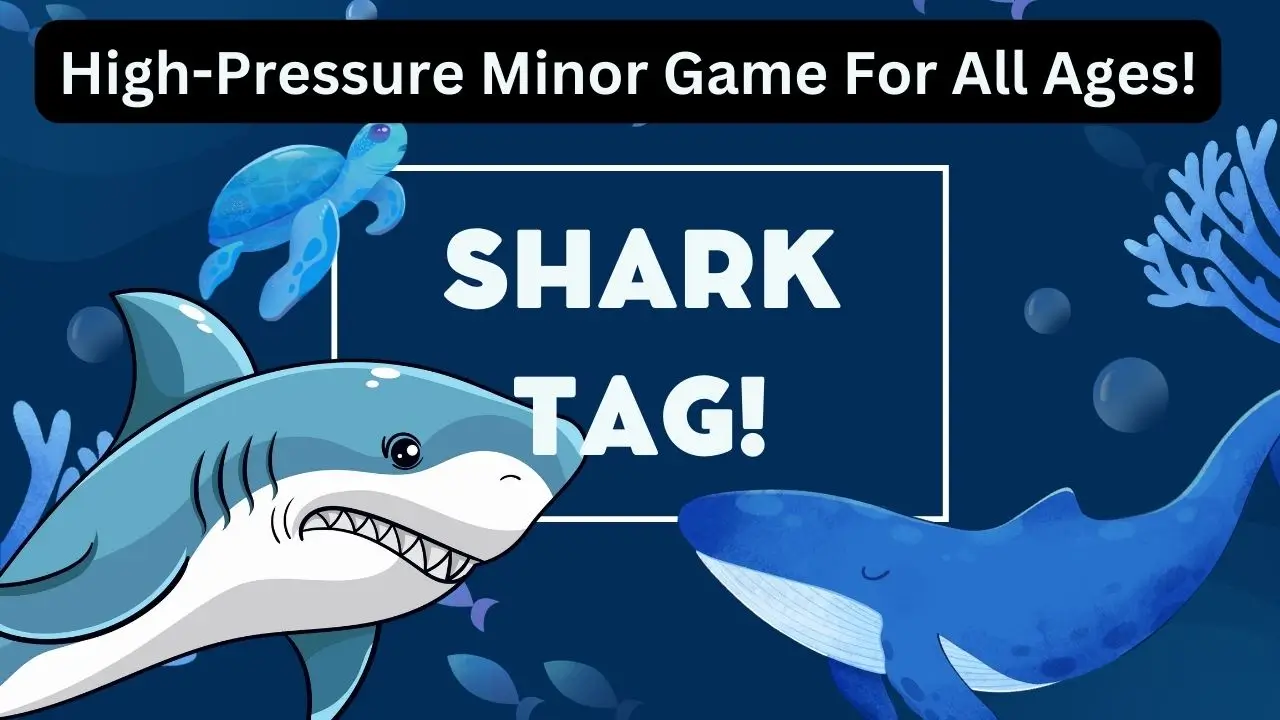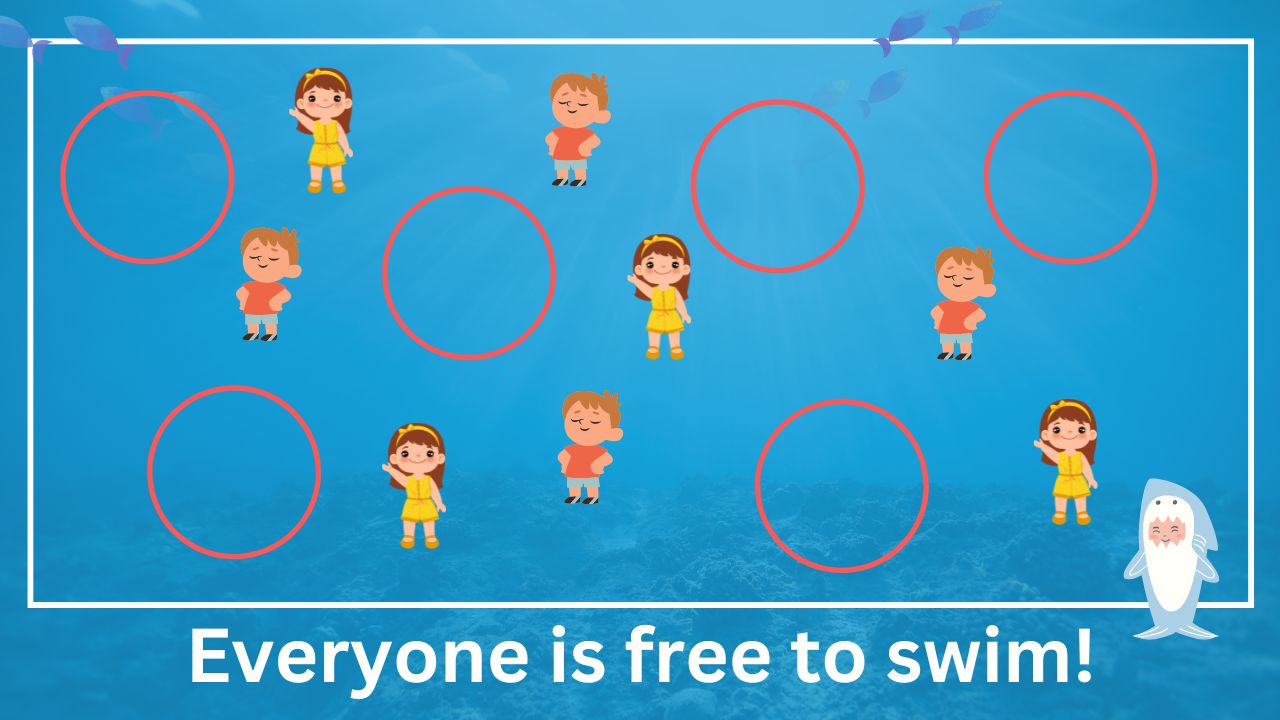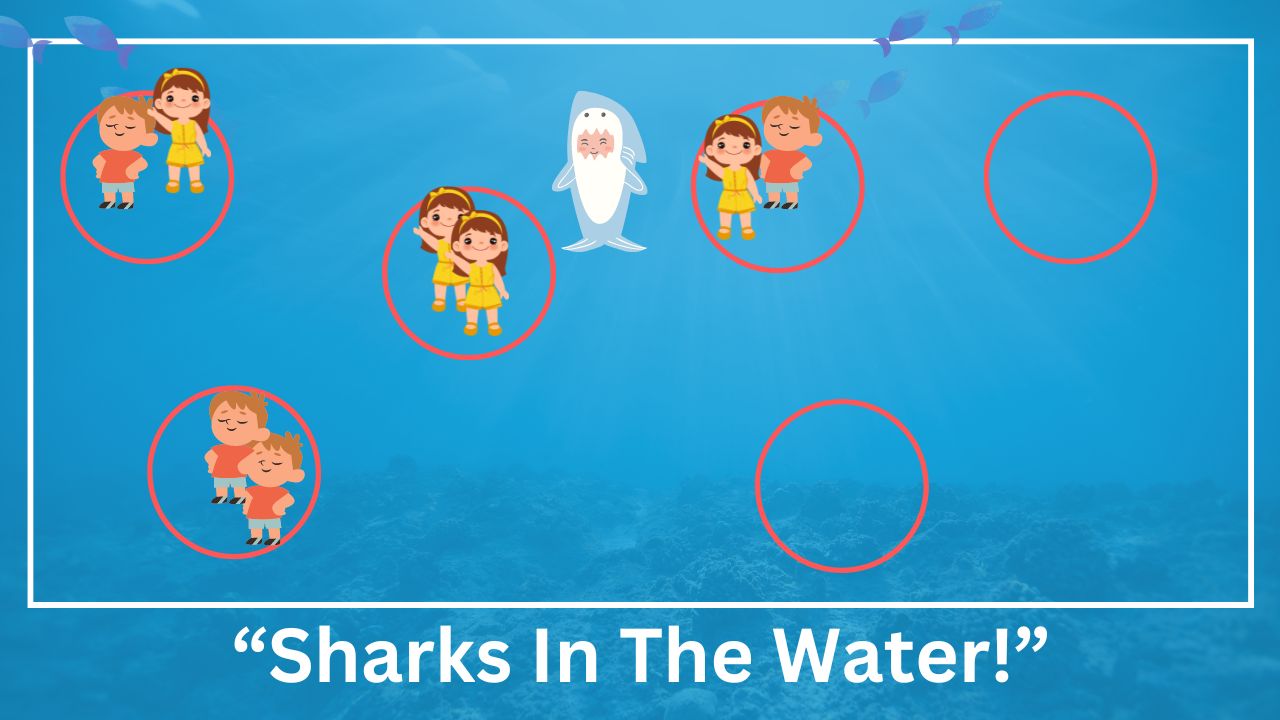Sharks In The Water | Minor Game for all ages!
Apr 15, 2024


Kas
A high-energy game, that works for any age group Reception to Year 10. A minor game that can be a great warm-up for older students or a great minor game to teach younger students about decision-making, teamwork and high-pressure decision-making during physical activity!
There are many benefits to creating fun pressure situations in physical activity games. Not only does it encourage students to be active and increase their effort during the activity, it also prepares students for more complex games and structured sports when pressure may effect their decision making ability and technical skill. This minor game is a great teaching tool to unpack and discuss these dilemmas with your students and strategise ways to over come them not only in this game but also in future game play.
This game has been a staple in my programs across year levels as it requires minimal resources (that’s a big tick in my box!) and due to its fun creative storyline students tend to really enjoy this game. The way the game is explained in this resource is just a guideline, it can be modified and changed in many ways to suit the needs of your students and lesson objectives.
Have a read and let me know what you think!
What Do You Need?
- Hula-hoops
- Court space
- Music (optional)
How To Play?
- The teacher randomly places hoops around the playing area
- Once hoops are placed, they cannot be touched or moved.
- Hoops are ‘Reefs’ in the game
- The rest of the playing space is considered the ocean
- One student is selected to be a shark (Tagger)
- When the game starts, all students have to move around the playing area and cannot stand still (Swim) or be around/in the hoops (reef). The shark (tagger) waits outside of the basketball court during this time.
- The teacher will then yell ‘Sharks in the water!!’, when this happens all students will need to run to the reefs as quick as possible and step into the hoop to avoid being tagged by the shark.
- When the teacher yells ‘Sharks in the water’ the shark runs from outside of the court and into the ocean trying to tag as many fish as he can before they get into the hoop.
- Students are not allowed to push others outside of the hoop and if they fall out they can be tagged.
- If the shark tags a student, they become a shark and the game continues not with more taggers. If the shark can not catch the fish that are not on the reef, the teacher can restart the game again.
Optional:
- This game can be played with music- when the music stops that means ‘sharks in the water’
- When the music is on, the fish are free to swim

When the teacher yells “Sharks in the water! (Or when the music stops)

What Is The Goal Of The Game?
- Students to avoid being tagged by the shark
- To make decision in high pressure situations
- Reading the field of play to assess for successful outcomes
How Can You Modify It?
Make It Easier!
- Students get two chances
- Make the playing area bigger
- Sharks stand further back to allow more time for students to find a reef
Make It Harder!
- Slowly remove hoops
- Limit how many students can be in a hoop at a time
- Boys can only be in a specific-coloured hoop and girls in a specific-coloured hoop
What Are The Main Skills Being Utilised?
Technical Skills:
Fundamental Movement Skills:
- Locomotor- run, jump, dodge, lunge, side step, leap
- Stability- turning, balance, stopping, bending, stretching
Tactical Skills:
- Scanning the field of play to make decisions
- Looking for gaps on the field to avoid being tagged
- Cooperative play, supporting teammates
- Following rules and structures of a game
- Critical thinking through decision-making
Why are high pressure minor games beneficial for our students?
- Managing Stressful Situations: Engaging in high-pressure P.E. games can help students develop effective stress management skills. According to the American Psychological Association (APA), exposure to controlled stress in activities like competitive sports can teach individuals how to handle pressure in a healthy manner. This can translate into improved resilience and coping mechanisms both in academic and real-life situations.
- Better Outcomes in Pressure Scenarios: Participating in high-pressure P.E. games provides students with opportunities to perform under stress. Individuals who regularly faced high-pressure situations showed improved performance over time. The study suggests that exposure to pressure can lead to better performance outcomes, as individuals become more accustomed to managing stress and focusing on task execution (Journal of Experimental Psychology: Applied, “Pressure Increases Performance”).
- **Teamwork and Communication Skills: **High-pressure P.E. games often require teamwork and effective communication, which are essential life skills. Research indicates that team sports can significantly improve communication skills among adolescents. The pressure of competition encourages students to collaborate, strategize, and communicate effectively with their teammates to achieve common goals. These skills are transferable to various aspects of life, including academic settings and future careers (Journal of Applied Sport Psychology, “Team Communication”).
Other Useful Articles and Games:
- Want to know more about minor games? Click here
- Why are tag games for great for students of all ages? Click here to find out
- Want to assess your students with games like these? heres how to do it…the right way!
- Want to know how to use your whistle more effectively in the classroom our outside of it? Click here to see what we do!
Helpful Resources:
- Fundamental Movement Skills: Flash Cards + Circuit
- Coloured Cones For Teaching P.E! (Amazon)
- Coloured Sit Spots for behaviour management! (Amazon)
- Awesome Teacher Planner! (Amazon)
- How to create a better work life balance?
- Why are minor games important for students to learn?
- Emotional Regulation Posters
- Assessments for P.E- Ready to go
- What are invasion games?
- First time teaching P.E? Heres where to start!
